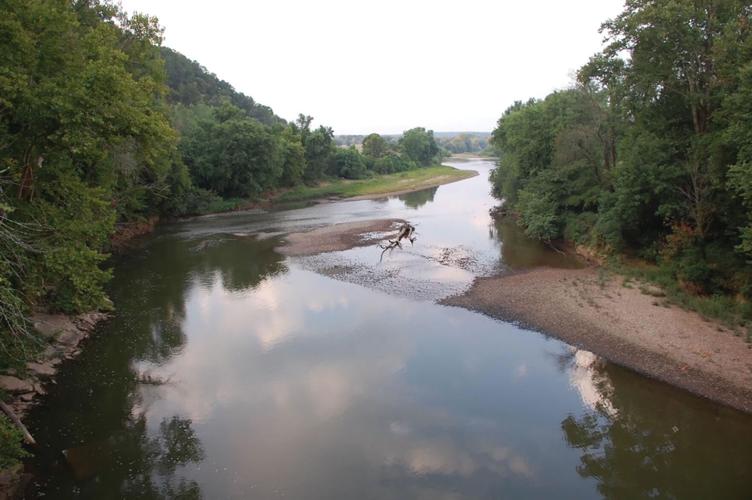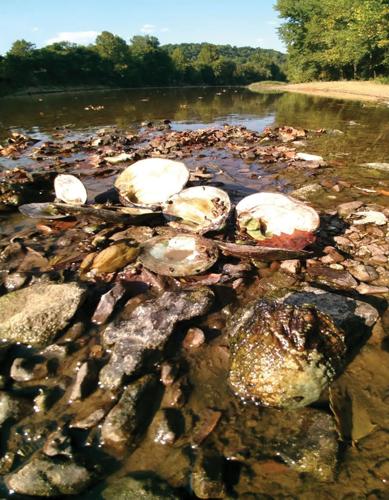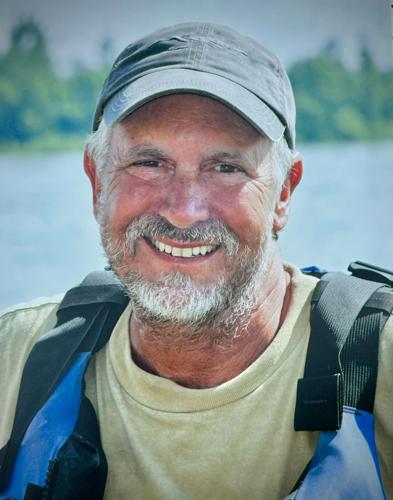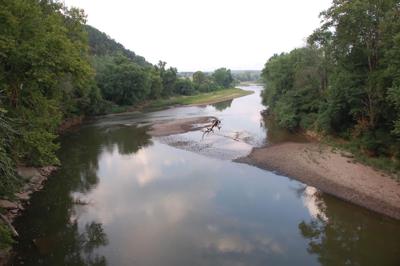John Guider is no stranger to life-threatening situations, having survived at least three episodes where he was within minutes of his own death. For his next big adventure, however, it’s not his own life he is concerned about. As he prepares to travel solo by canoe the full length of Middle Tennessee’s Duck River, it’s the survival of the river itself that worries him most.
For Guider, the solitude of water is the salve for the cacophony of modern life. His Homeric journeys have taken him out his backdoor in Franklin, where he dragged and paddled his boat from creek to stream to river until he reached New Orleans, only to go back to the headwaters of the Mississippi to float the northern stretch — so he could say he had canoed the mighty river from spring to sea. Guider is a photographer by trade, and that trip resulted in his first book, a collection of platinum prints titled The River Inside.

John Guider
Other voyages include sailing the 6,000-mile Great Loop, which connects the Great Lakes and the intracoastal routes of the Eastern Seaboard. His retracing of John Donelson’s 1779 trip is chronicled in the book Voyage to Adventure: Retracing the Donelson Party’s Journey to the Founding of Nashville, which also spun off a documentary through Nashville Public Television.
Now his sights are set on the Duck River, with a launch date scheduled for Sept. 30. At 269 miles, it’s the longest Tennessee river that never leaves the state.
When asked the inevitable “why,” at the age of 75, he still feels compelled to test himself on these trips, Guider answers without hesitation: “It’s a passion for me. I just needed to continue.”
“I love rivers, and the beauty and spirituality of being in nature, of being able to see a tree as an individual, going two to three miles an hour, able to observe animals, and not speeding down the highway,” he muses from East Nashville, where he now lives. “The combination of the exercise and spirituality, they bring life to me.”
While Guider won’t have to deal with tidal whirlpools and water so cold you can feel it drain life out of you, the Duck River comes with its own troubles.
A visit to the naked banks tells a story of an ecosystem fighting for survival. What was hailed by National Geographic as one of the three most biodiverse rivers in the world is currently languishing in severe and extreme drought, threatening to break records set in 2007. Recognizing its tenuous position, organizations like the Harpeth Conservancy have been working to protect the Duck River for years.
Litter cleanup is just one way the group works to restore our waterways
One of the barometers of the river’s health is the population of humble freshwater mussels. Of the 56 species found in the Duck, some are critically endangered — including a species found only in that river. And right now, thousands of the bivalves are drowning in air, gasping for water. When speaking with Guider about it, you get the sense that he feels the existential molluscan pain.
Guider’s original interest in the Duck came from trips he took with his young son. Later he learned the utilities along the river that have supplied local communities and industries were petitioning to draw even more water. Current permits allow for up to 59 million gallons per day to be drawn off. New permits are asking for another 19 million gallons, numbers that are untenable given the drought conditions. Unprecedented community growth and unchecked needs for water have drawn great environmental concern. The demand, coupled with climate shifts that spur more frequent and extreme weather events like heat and drought, has the Duck locked in a struggle for survival.
George Nolan, senior attorney and director of the Nashville office of the Southern Environmental Law Center, has been retained by the Tennessee Wildlife Federation to challenge the terms of the permits. “It is a finite resource of limited capacity,” says Nolan, who recently found he could wade across a once-deep section of the Duck in Hickman County without getting his knees wet.
“What we object to are lax permits,” says Nolan. “We need appropriate guardrails that require utilities to start reducing human water consumption during periods of drought. There is currently no plan for such impacts. If we don’t learn how to respect the river’s capacity, it will turn into Duck Creek.”
His other concern is about the return of wastewater to the river. When water levels are critically low, there is not enough clean water to dilute the waste, essentially raising its toxicity.

Mussels in the Duck River
“Healthy populations of freshwater mussels are the ‘canaries in the coal mine,’” he says. “They are an indicator of river health, and are the first to die and last to come back. Some of the larger ones can filter up to 50 gallons a day.”
While the initial environmental impact of over-harvesting the water piqued Guider’s interest, the exacerbating effect of the current drought made this trip all the more imperative. He is also in discussions with NPT about another documentary to help raise awareness.
Now the trip is at hand. Guider plans to launch his solo canoe Monday and estimates the trip will take about three-and-a-half weeks. Scouting trips have already confirmed some of his fears about the water levels in the upper sections above the Normandy Dam, forcing him to shift his put-in point from the Old Stone Fort to Powers Bridge due to limited navigability.
In the meantime, discussions have begun among state and local stakeholders, from the Tennessee Department of Environment and Conservation, which works with utilities, to the Tennessee Wildlife Resources Agency, which recognizes the recreational role of the river. In between are the Tennessee Valley Authority, controlling water releases from the dam at Normandy Lake, and the myriad environmental organizations that advocate for the rivers.
“I have to do this now,” says Guider, recalling being attacked by sharks and alligators, and being pulled from the North Pacific as the tunnel of light began to close in. “I can’t predict my own future. No one knows.”
Guider has partnered with the Harpeth Conservancy, which will remain in contact with him and track his progress. Follow along on his journey at harpethconservancy.org/johnguider.









